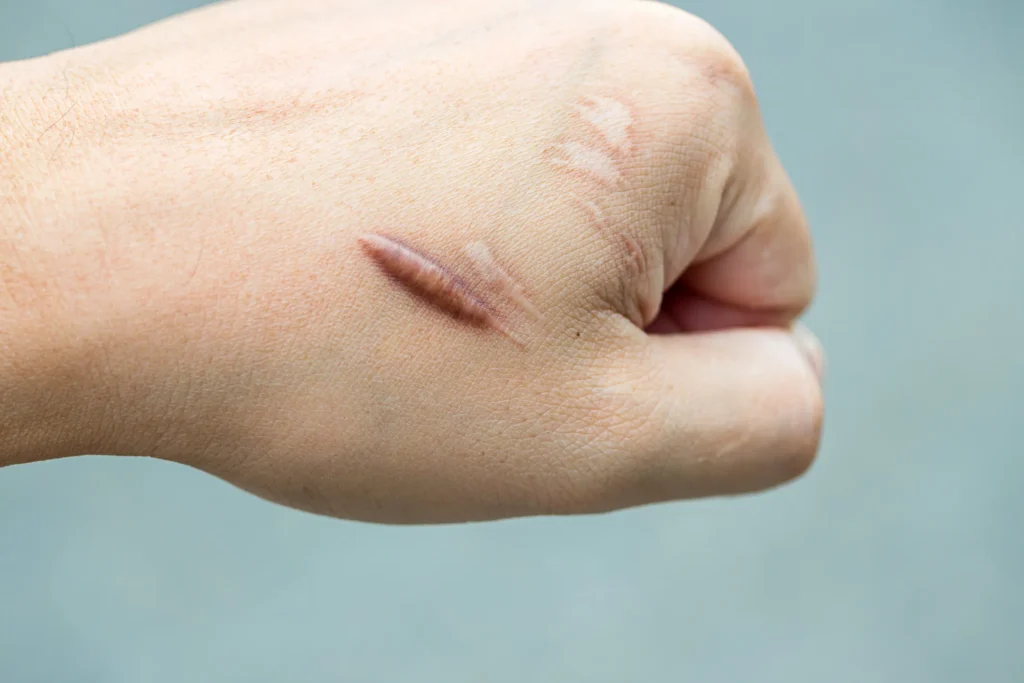
Potato
The belief that potatoes may treat scars is supported by just weak medical data. But according to a 2017 research, potato peel may aid in the recovery of small burns.
Try it:
- Spherical potatoes that are around a middling thickness.
- Rub your scar with the potato slice in a circular motion.
- Throw away the dried-out potato slice and begin rubbing with a fresh one.
- After approximately 20 minutes of rubbing and replacement, let the scar air dry for about 10 minutes.
- Use cold water to rinse the area.
- At least once a day, repeat this technique.
Rosehip and frankincense
One 2019 research Rosehip oil greatly accelerated wound healing and significantly decreased scarring, according to a reliable source.
2017 research
According to a reliable source, frankincense oil could help human dermal fibroblasts repair more quickly.
Try it:
- Mix equal parts rosehip essential oil and frankincense essential oil.
- Massage the rosehip-frankincense mixture onto the scar.
- Wait for 45 minutes before gently rinsing the area with warm water.
- Follow this procedure three times a day.
Baking soda
Older 1995 research When baking soda was used, postsurgical wound healing was particularly examined by a Reliable Source and shown to significantly improve. At day 7 and especially at day 14, this was seen.
Try it:
- Mix distilled water — a little at time — into 2 tablespoons of baking soda until it forms a paste.
- Wet your scar with distilled water and then apply the paste to the wet scar.
- Hold the paste in place with a warm compress for 15 minutes.
- Rinse the area and repeat daily.
The takeaway
You could want to attempt a natural solution if you want to make a scar seem less obvious. Many individuals think that using natural treatments will be effective.
Have a discussion with your healthcare provider before beginning, as with any home cure. A doctor can provide advice regarding what treatments you should or shouldn’t try.








